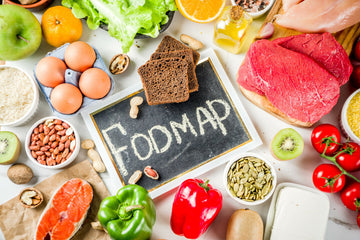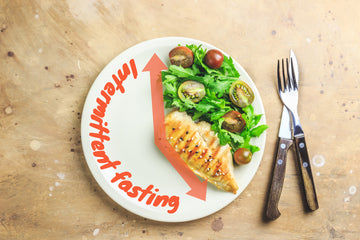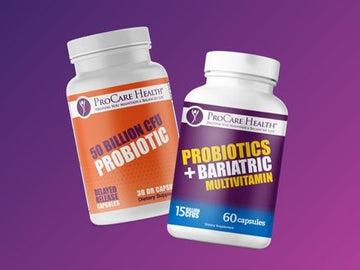by Anthony Benjamin on Oct 12, 2022

Are Plant-Based Meat Alternatives Healthy?
Over the years, you may have noticed or kept tabs on the growing plant-based community. This community prefers not to consume animal products and sometimes byproducts. Because of the rise in popularity in this movement, many manufacturers have innovated new ways of consuming plants that mimic meat products. The introduction of plant-based meat alternatives has changed how many people look at food. Some see these new alternatives as better options than meat-based products. Is that true? Are plant-based meat alternatives healthy? Keep reading to find out.
What is Plant-Based Meat?
There are many different brands and versions of plant-based meat alternatives; like the Impossible Burger, there are products that utilize potato and soy proteins to create a meat-like consistency. To achieve a meaty flavor, manufacturers use heme iron. While this type of iron derives typically from animal products, the product used in things like the Impossible Burger is derived from the root nodules of the soybean plant and made through the fermentation of genetically engineered yeast.
Other options include soy-based foods like soybeans, tofu, tempeh, and soy-containing meat alternatives. Soy is a legume and is considered one of the original plant-based alternatives for meat. Soy is excellent because of its mild flavor and versatile texture.
Seitan is another plant-based meat alternative made from vital wheat gluten. It has a savory flavor and a chewy texture that works well in things like stir-fry and pasta dishes. This alternative is high in protein and contains small amounts of iron, calcium, and potassium. While this is great, it’s unsuitable for people with celiac disease or non-celiac gluten sensitivity.
Jackfruit is also a great choice as far as plant-based options go. Not only are you consuming the flesh of the fruit (no extra processing needed), but its consistency and mild flavor make it ideal for dishes like pulled pork. It’s low in calories and doesn’t have much protein and fat compared to other plant-based meat alternatives. However, it does offer some fiber and small amounts of micronutrients, like iron, calcium, and potassium.
The Benefits of Plant-Based Meat Alternatives
Choosing to eat plants may be a moral and ethical issue for some, and for others, it may be a preference to help maintain optimal health. Either way, eating plants means you’re not contributing to industrialized animal agriculture or its effects on animal welfare, public health, or the environment.
Research also shows that a high intake of processed meats (particularly red meats) can increase your risk of developing certain cancers, specifically the colon and breast. Most western diets also lack essential nutrients, like fiber, which can be found in many plant-based meat alternatives. Besides more fiber, vegetables also offer more vitamins and minerals that provide more health protection.
In addition to health benefits, there is no cholesterol found in plant-based alternatives making it a healthier choice for people with cardiovascular diseases.
The Negatives of Plant-Based Meat Alternatives
Not all plant-based meat alternatives provide you with enough protein. Unless your product contains soy, you’re missing out on key amino acids, which are the building blocks for protein formation within the human body. While protein can still be found in plant-based alternatives, like beans, you’ll need to eat a lot more beans to receive enough dietary protein. For example, if you were to eat three ounces of 90% lean beef, you’d receive about 22g of protein. You’d have to eat three and a half cups of beans to receive the same amount a protein. Overall, plant-based foods are simply not where you’re going to find all the protein you need to sustain yourself. While they have many other benefits, they are not a perfect substitute for protein-rich sources like lean beef.
Some plant-based meat alternatives are also highly processed, like the Impossible Burger. It’s just as high in total and saturated fat as its meat counterpart. The burger even contains more sodium than a single beef patty, negatively impacting heart health. It’s also pertinent to point out that just because you are choosing meat alternatives, doesn’t mean they are cutting calories. For example, a whopper is 657 calories while the Impossible Whopper is 628. There are also other meat alternatives that are even more caloric than that, so watch out for how many calories you’re actually consuming.
Many other packaged meat alternatives, like sausage, chicken, and fish, may contain different ingredients health-conscious individuals may wish to avoid, such as refined oils, modified cornstarch, dextrose, or added sugar.
Plant-based meat alternatives can also be a bit pricey. Plants are produced on a smaller
scale than meat, making them more expensive. Plant-based meats also tend to contain a
variety of whole foods, which will generally cost you more. Some plant-based burger
alternatives can cost up to 50 cents to four dollars a patty! 
What Is the Healthiest Option?
It’s essential to take the pros and cons of plant-based meat alternatives with a grain of salt. Not all plant-based meat alternatives are made equally. Yes, some can be overly processed and contain more calories, fat, and sodium, but there are plenty of options for those looking to take care of their health and the environment. The goal is to find alternatives as close to whole food as possible because plant-based diets can be cost-effective and a low-risk way to lose weight and lower blood pressure and cholesterol levels. Plant-based diets have even been shown to lower your risk of chronic disease. They’re especially encouraged for those who have diabetes, high blood pressure, obesity, and cardiovascular disease.
When looking for a suitable plant-based meat alternative, seek out a nutrient-dense ingredient list that includes whole foods, like beans, legumes, vegetables, grains, seeds, and nuts. Also, make sure that saturated fat contributes to less than 10% of the overall calories of the product. There should also be added vitamins and minerals, such as vitamin B12 and vitamin D. You should also double-check to ensure that your product contains protein-rich ingredients, like pea protein. Avoid anything with artificial ingredients, added sugars, and high in calories. Be diligent by reading the nutritional facts on packaging and if you are having trouble with navigating a good plant-based alternative, ask a dietitian!
Shop ProCare Health
If you are plant-based, you might find it hard to get all the necessary nutrients from your food, especially if your products are not fortified with things like protein and vitamin B12. Check out ProCare Health’s wide selection of bariatric supplements to help fill the gaps. Our high-quality supplements will help you keep your health on the right track. Contact us today with any questions you may have.

How the Low FODMAP Diet Is Good for Gut Health

What Is Food Noise?


